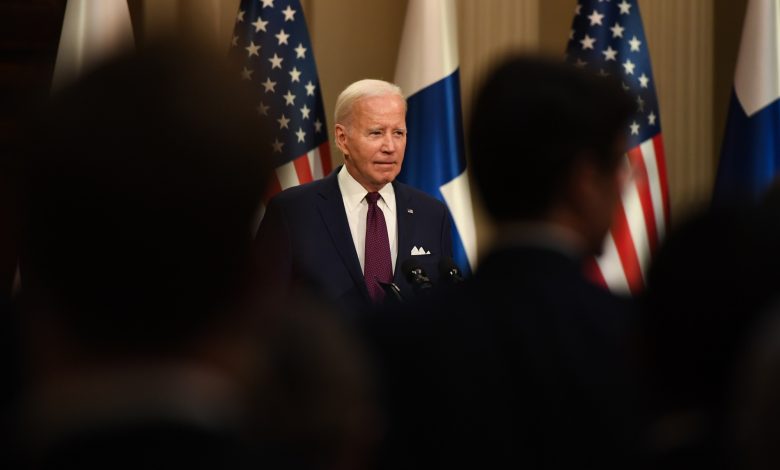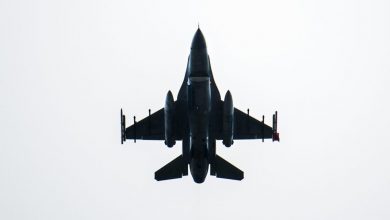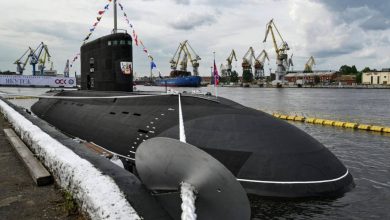Analysis: As Washington intensifies support for Israel, might Ukraine and Taiwan lose out?

President Biden requested additional $106B security package from Congress, mainly targeting support for Ukraine and Israel, while only pledging further $2B to military efforts in Indo-Pacific
The author is a researcher and journalist focusing on conflict and geopolitics in the Middle East and North Africa, primarily related to the Gulf region.
ISTANBUL
As Israel continues its assault on Gaza, the US has orchestrated its largest naval deployment in the East Mediterranean and the Red Sea in decades, which includes aircraft carrier strike groups. The aim is to ensure Israel is not interfered with and deter regional adversaries, namely those factions backed by its adversary Iran.
However, this recent shift of military assets to the Middle East, a region where Washington has traditionally held strategic interests, raises questions about the sustainability of America’s bloated security umbrella. Indeed, there’s growing curiosity and concern about potential trade-offs, especially involving support for Ukraine and allies in the Indo-Pacific, as Washington’s priorities continue to evolve.
US defense budget
It’s certainly true that the US has long been able to operate a formidable presence on many fronts. In fact, with a defense budget of $877 billion last year, it not only holds the top spot in global defense spending but also surpasses the combined spending of the next 10 countries.
However, with Washington’s defense budget shrinking as a percentage of its gross domestic products (GDP) currently below the 50-year average, and government projections [2] that it will drop further over the next 10 years, its current military commitments may be hard to sustain. Even former US defense officials have warned that current defense priorities are untenable, while it currently supplies two wars.
Biden, Xi meet with underlying tensions persisting
The recent Asia-Pacific Economic Cooperation (APEC) summit in San Francisco highlighted Washington’s strategic concerns elsewhere. There, Chinese President Xi Jinping, meeting with US President Joe Biden, remarked [4] that “the world is big enough” for both nations to thrive, echoing hopes for a potential positive evolution in bilateral ties.
Expectations for this meeting were low, with underlying tensions persisting. Indeed, Biden labelling Xi a “dictator” underscores ongoing ideological differences. Prior to the meeting, China’s condemnation of Israel’s actions in Gaza and its call for an independent Palestinian state contrasted sharply with Washington’s stance, showing further bilateral rifts.
Crucially, Xi’s reiterated ambition to reclaim Taiwan – seen by Beijing as a wayward province – remains a critical point of contention. For the US, Taiwan’s significance lies in its role as a pivotal manufacturing hub for artificial intelligence semiconductors, marking it as a key flashpoint in their geopolitical and technological rivalry.
Amid China’s ascension and its growing militarization in the South and East China Seas, which has alarmed Washington, the US has adeptly strengthened its alliances with pivotal partners such as Japan and Australia. Additionally, the Philippines has embraced the US-led security nexus in its territorial disputes with Beijing. All of which has been part of Washington’s “containment strategy” for China.
Moreover, the US reassurance of continued support to both Japan and South Korea may relieve some anxieties for these nations. And at a recent G-7 meeting in Tokyo, Secretary of State Antony Blinken sought the group’s unity over Israel’s fighting with Hamas and Gaza, to which Japanese Foreign Minister Yoko Kamikawa replied: “You have our utmost support.”
US foreign military aid
While Israel is already the US’ biggest recipient of foreign military aid, currently receiving a staggering $3.8 billion per year, the US has fast-tracked extra support to its close ally since Oct. 7, particularly the Iron Dome missile defense system and its Tamir interceptors, which are unique to Israel.
Exclusive to Israel’s arsenal are also air-launched small diameter bombs [8], tailored for the bombing campaign in Gaza, and joint direct attack munitions (JDAMs), which turn ordinary missiles into precision-guided weapons. So while much US assistance doesn’t currently clash with support to Ukraine and Taiwan, there are still some overlaps like artillery shells. The Biden administration emphasized its priorities when President Biden requested an additional $106 billion security package from Congress in October, mainly targeting support for Ukraine and Israel, while only pledging a further $2 billion to military efforts in the Indo-Pacific.
Blinken has also promised further support to Ukraine over the winter, yet there are still uncertainties over how much the US can balance its manifold security commitments. Yet military aid to Ukraine has faced hold-ups, influenced by internal factors such as recent congressional measures to avert a government shutdown, coupled with rising skepticism about parts of this aid. This has set the stage for increased debate over where US aid is directed. Next year’s US presidential elections could make these discussions over aid more pronounced. Indeed, the Republican Party, while also a steadfast supporter of Israel, is increasingly divided over supporting Ukraine.
Last week Ukrainian President Volodymyr Zelenskyy observed [8] that aid has already dwindled amid the Israel-Gaza war, particularly in 155mm ammunition shells. The Pentagon managed to pass a smaller $100 million aid package on Monday, which included ground-launched small diameter bombs and extra ammunition shells and may be some consolation to Kyiv.
However, should Washington’s aid to Ukraine prove insufficient, the likelihood of the war becoming a “frozen conflict” grows, with battle lines in Kyiv’s counter-offensive against Russia seeing just incremental changes this year. This risk is compounded by the challenges European countries face in meeting their targets for supplying Ukraine. Despite these complications, Western leaders continue to demonstrate strong solidarity with Kyiv.
As Washington juggles its commitments amid internal and external pressures, with protecting Israel, deterring China, and supporting Ukraine currently remaining priorities, it is likely to face more trade-offs. Such decisions may highlight the challenges inherent in effectively maintaining its vast long-term global security commitments and aspirations.
Source: AA





